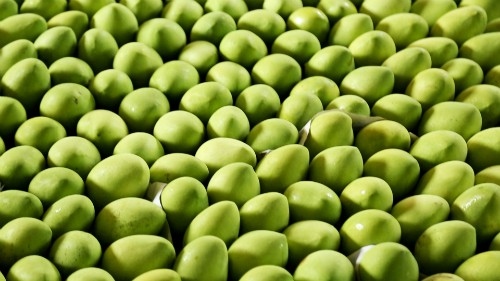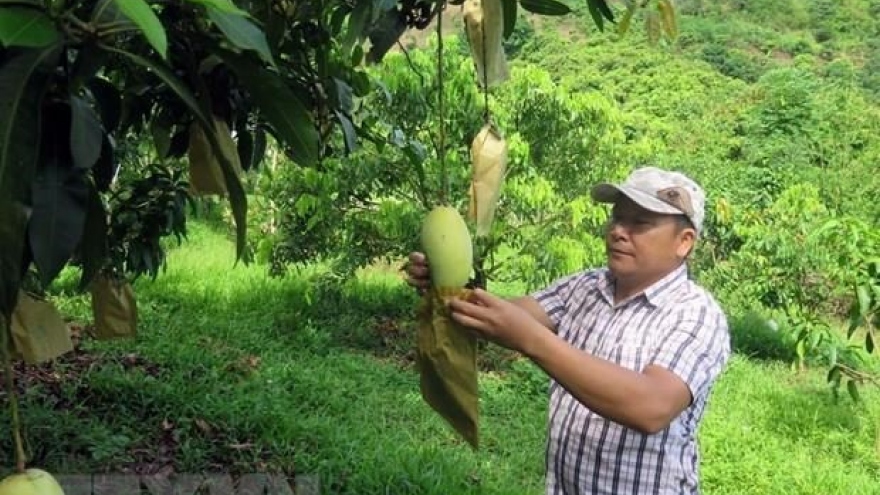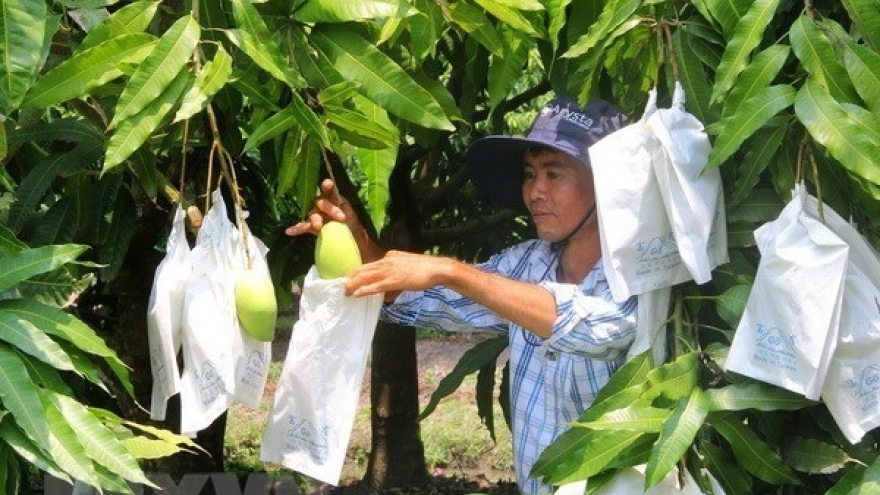Mango exporters aim to remove hurdles amid cases of origin fraud
VOV.VN - A number of localities which are home to large mango-growing areas throughout Mekong Delta have been striving to find new export markets following the suspension of mango imports by China due to a number of firms faking origin traceability code.
Dang Phuc Nguyen, general secretary of the Vietnam Fruit and Vegetables Association, says the Chinese suspension of mango imports has exerted a significant impact on local businesses as the northern neighbour is the largest consumer of Vietnamese fruit, accounting for over 70% of total export turnover last year.
According to the Plant Protection Department under the Ministry of Agriculture and Rural Development, despite this suspension yet to have an impact on the country’s mango exports because of the season ending for the fruit in the south, domestic businesses are concerned about seeking fresh outlets for their products in the near future.
Nguyen notes that with Vietnamese mangos being grown in accordance to standards suitable for export to the Chinese market, these fruits will not be eligible to enter other demanding markets such as the United States and Japan.
Indeed, China may even tighten the inspection process for other Vietnamese fruit and vegetable products after the suspension of mango imports, Nguyen adds.
The Plant Protection Department therefore emphasizes that two of the 82 mango-growing regions, in addition to one of the 12 packaging facilities in Dong Thap, were named among the violation list.
Most notably, Dong Thap's packaging and exporting establishments state that counterfeiters have faked origin traceability codes or have alternatively used their growing area codes in an effort to export the fruit, thus leading to poor-quality products and affecting the prestige of Vietnamese mangoes.
Dinh Kim Nhung, deputy director of Kim Nhung Dong Thap Co., Ltd., suggests that there should be certifications granted by the owners of growing areas for each export shipment, which will therefore be eligible for customs clearance.
These measures will serve to protect genuine businesses and farmers, whilst simultaneously avoiding counterfeiting origin traceability codes.
The Departments of Industry and Trade of provinces in the Mekong Delta have been working closely with the nation’s trade counselors and trade offices based abroad in order to diversify markets for mangoes and increase the export of the fruit moving forward.
In line with this, trade promotion schemes via online platforms will be held as a way of introducing the fruit to consumers.
The Vietnam Fruit and Vegetables Association stresses the necessity of increasing intensive processing and giving due attention to the domestic market through strengthening connectivity with distributors and supermarkets.



